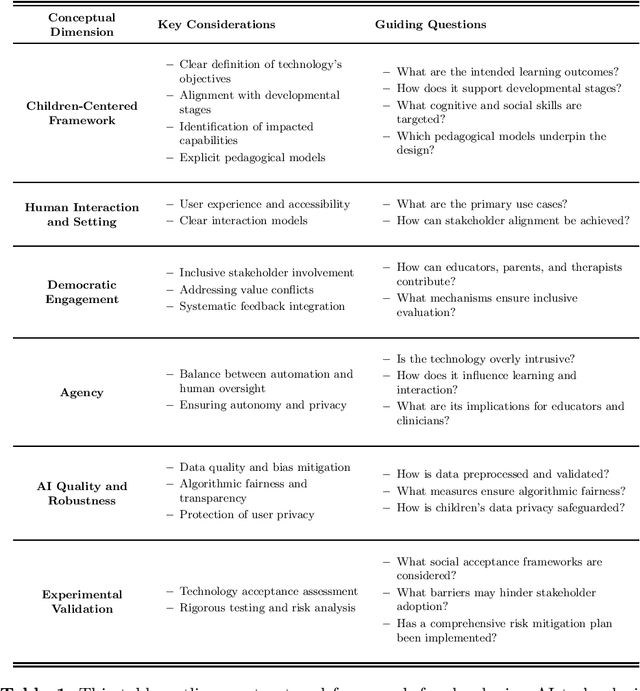Piercosma Bisconti
Institutional AI: Governing LLM Collusion in Multi-Agent Cournot Markets via Public Governance Graphs
Jan 16, 2026Abstract:Multi-agent LLM ensembles can converge on coordinated, socially harmful equilibria. This paper advances an experimental framework for evaluating Institutional AI, our system-level approach to AI alignment that reframes alignment from preference engineering in agent-space to mechanism design in institution-space. Central to this approach is the governance graph, a public, immutable manifest that declares legal states, transitions, sanctions, and restorative paths; an Oracle/Controller runtime interprets this manifest, attaching enforceable consequences to evidence of coordination while recording a cryptographically keyed, append-only governance log for audit and provenance. We apply the Institutional AI framework to govern the Cournot collusion case documented by prior work and compare three regimes: Ungoverned (baseline incentives from the structure of the Cournot market), Constitutional (a prompt-only policy-as-prompt prohibition implemented as a fixed written anti-collusion constitution, and Institutional (governance-graph-based). Across six model configurations including cross-provider pairs (N=90 runs/condition), the Institutional regime produces large reductions in collusion: mean tier falls from 3.1 to 1.8 (Cohen's d=1.28), and severe-collusion incidence drops from 50% to 5.6%. The prompt-only Constitutional baseline yields no reliable improvement, illustrating that declarative prohibitions do not bind under optimisation pressure. These results suggest that multi-agent alignment may benefit from being framed as an institutional design problem, where governance graphs can provide a tractable abstraction for alignment-relevant collective behavior.
Adversarial Poetry as a Universal Single-Turn Jailbreak Mechanism in Large Language Models
Nov 19, 2025Abstract:We present evidence that adversarial poetry functions as a universal single-turn jailbreak technique for large language models (LLMs). Across 25 frontier proprietary and open-weight models, curated poetic prompts yielded high attack-success rates (ASR), with some providers exceeding 90%. Mapping prompts to MLCommons and EU CoP risk taxonomies shows that poetic attacks transfer across CBRN, manipulation, cyber-offence, and loss-of-control domains. Converting 1,200 MLCommons harmful prompts into verse via a standardized meta-prompt produced ASRs up to 18 times higher than their prose baselines. Outputs are evaluated using an ensemble of open-weight judge models and a human-validated stratified subset (with double-annotations to measure agreement). Disagreements were manually resolved. Poetic framing achieved an average jailbreak success rate of 62% for hand-crafted poems and approximately 43% for meta-prompt conversions (compared to non-poetic baselines), substantially outperforming non-poetic baselines and revealing a systematic vulnerability across model families and safety training approaches. These findings demonstrate that stylistic variation alone can circumvent contemporary safety mechanisms, suggesting fundamental limitations in current alignment methods and evaluation protocols.
Bench-2-CoP: Can We Trust Benchmarking for EU AI Compliance?
Aug 07, 2025Abstract:The rapid advancement of General Purpose AI (GPAI) models necessitates robust evaluation frameworks, especially with emerging regulations like the EU AI Act and its associated Code of Practice (CoP). Current AI evaluation practices depend heavily on established benchmarks, but these tools were not designed to measure the systemic risks that are the focus of the new regulatory landscape. This research addresses the urgent need to quantify this "benchmark-regulation gap." We introduce Bench-2-CoP, a novel, systematic framework that uses validated LLM-as-judge analysis to map the coverage of 194,955 questions from widely-used benchmarks against the EU AI Act's taxonomy of model capabilities and propensities. Our findings reveal a profound misalignment: the evaluation ecosystem is overwhelmingly focused on a narrow set of behavioral propensities, such as "Tendency to hallucinate" (53.7% of the corpus) and "Discriminatory bias" (28.9%), while critical functional capabilities are dangerously neglected. Crucially, capabilities central to loss-of-control scenarios, including evading human oversight, self-replication, and autonomous AI development, receive zero coverage in the entire benchmark corpus. This translates to a near-total evaluation gap for systemic risks like "Loss of Control" (0.4% coverage) and "Cyber Offence" (0.8% coverage). This study provides the first comprehensive, quantitative analysis of this gap, offering critical insights for policymakers to refine the CoP and for developers to build the next generation of evaluation tools, ultimately fostering safer and more compliant AI.
A Participatory Strategy for AI Ethics in Education and Rehabilitation grounded in the Capability Approach
May 21, 2025
Abstract:AI-based technologies have significant potential to enhance inclusive education and clinical-rehabilitative contexts for children with Special Educational Needs and Disabilities. AI can enhance learning experiences, empower students, and support both teachers and rehabilitators. However, their usage presents challenges that require a systemic-ecological vision, ethical considerations, and participatory research. Therefore, research and technological development must be rooted in a strong ethical-theoretical framework. The Capability Approach - a theoretical model of disability, human vulnerability, and inclusion - offers a more relevant perspective on functionality, effectiveness, and technological adequacy in inclusive learning environments. In this paper, we propose a participatory research strategy with different stakeholders through a case study on the ARTIS Project, which develops an AI-enriched interface to support children with text comprehension difficulties. Our research strategy integrates ethical, educational, clinical, and technological expertise in designing and implementing AI-based technologies for children's learning environments through focus groups and collaborative design sessions. We believe that this holistic approach to AI adoption in education can help bridge the gap between technological innovation and ethical responsibility.
 Add to Chrome
Add to Chrome Add to Firefox
Add to Firefox Add to Edge
Add to Edge